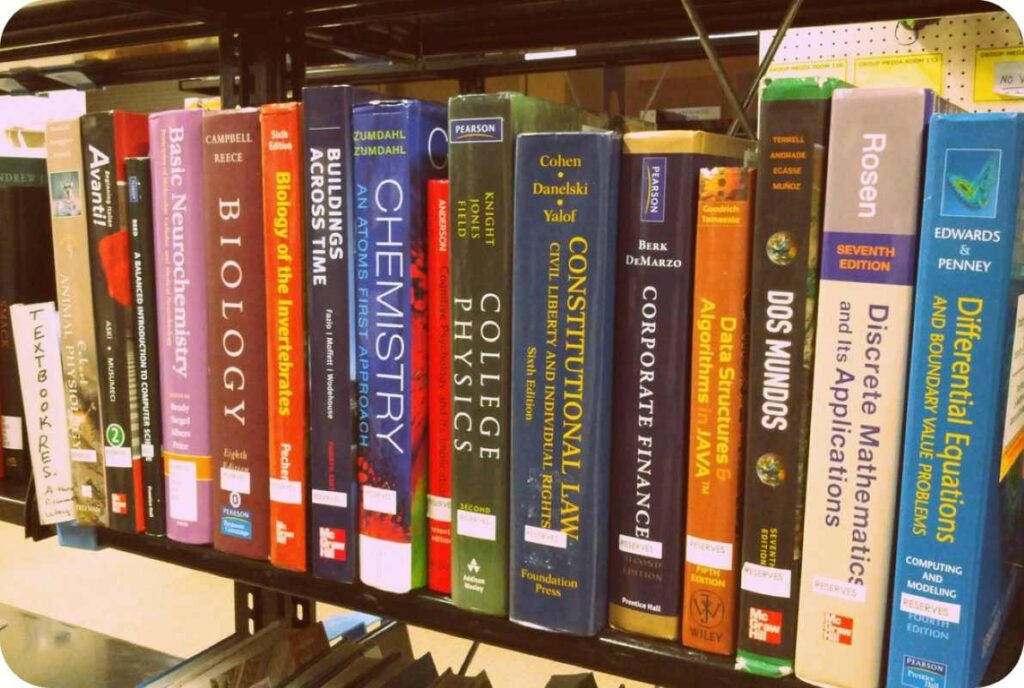Irrespective of learners’ financial status, institutions ought to include courses that teach money-saving tips for college students in the general curriculum. Do we hear you ask why? Drill the average fresh college graduate, and you’ll realize before long that their financial literacy is more often than not subpar.
Interestingly, college students’ living costs are at an all-time high. According to a National Center for Education Statistics survey, freshers in public colleges need roughly $26,000 for living expenses. First-year students in private institutions need even more, about $56,000. Consequently, this guide aims to help college students learn transformational tips that could eventually lead to financial success.
So, here are 10 ways to save money as a student while studying to earn your degree.
Get Yourself a Part-Time Job

Even if it does not align with your academic specialty, hunting for a part-time job while studying is always a good idea. Of course, some rules govern student employment. However, working part-time during your studies has multiple benefits. For one, you gain some work experience and get to improve your financial liquidity.
ALSO READ: How To Save Money as a Teenager for a Car
Make a Habit of Working With a Budget
Students with a small expenditure may wonder about the need to use budgets. However, budgets are financial tools that make it easy to track your spending. Besides, building that muscle of habit will pay off in the future when surplus resources are at your disposal.
Budget creation does not have to be complicated. To attend to priority entries, you only have to identify your income sources and create a list of your necessities.
Do Well To Always Have Your Student ID With You
Your student ID can do way more than you use it for. Yes, you use it around campus to access buildings and facilities. However, having it with you always could save you a few bucks here and there.
For example, identifying yourself as a student in places like restaurants, museums, mass transit providers, or even stores could earn you massive discounts. While some businesses don’t statutorily give out discounts to students, what you can get when you ask can be quite surprising.
Save Money On Textbook Purchases

Often, old and new textbooks have about the same content, except for little changes here and there in revised editions. So, if you need to buy books of your own, shop around for used copies. The price differences are often quite significant.
For texts that don’t have long-term utility, you may settle for renting instead of outright purchase. Also, if the textbook is popular, chances are high that your campus library would have copies on the shelf. So, you could borrow from the library and return when you’re done.
Maximize School Amenities
When students apply to a college, they pay for way more than tuition and accommodation when enrolled. Indeed, most colleges make it statutory for their students to register with the on-campus health center and library. However, no student will be compelled to use these facilities.
However, as a student looking to save as much money as possible, maximize all amenities your college offers. On-campus health services, gyms, entertainment facilities, etc., are usually free or heavily subsidized for students and staff members, so endeavor to make the most of them.
Plan Meals, Prepare Them Yourself As Often As Possible
A serviced belly fuels a sound mind, they say. So, make the most of the meals available at your dining hall. If there are hours when you could get the best meal offers, working your schedule around that period could be a great idea. Use all the cost-saving tips at your disposal to cut out excessive food expenses.
Avoid eating out. If you live off campus, tailor your grocery shopping to weekly meal plans to avoid food waste.
Avoid Getting Extravagant With Housing

For fresh and returning students, figuring out the best housing options may be a bit difficult. Compare the cost of boarding off and on campus and other modalities like convenience and accessibility. For example, students considering off-campus accommodation need to factor in the cost of commuting.
Some student accommodation offers resident assistantships with benefits like free housing. Some RAs even get additional stipends and free food for helping out other residents with defined tasks. Using offers that help you live within a budget is the goal.
Fill Out the Student Annual Aid Form
College students who fill out the Free Application for Federal Student Aid (FAFSA) are often considered for government-sponsored need-based financial aid. So, when the application season comes around each year, always endeavor to enlist.
However, it is important to note that accumulating savings from aid in your account may affect your eligibility in the future.
Apply for Scholarships and Grants
Scholarships and grants are multifaceted, meaning they could be from state or private sponsors. Also, you don’t have to squeeze it out through your nose after graduation. However, most scholarships and grants are merit-based, meaning the application and qualification processes can be highly competitive.
Having exceptional academic performance, excellent essay writing skills, and strong recommendations could give you an edge.
ALSO READ: 10 Money Saving Tips for Moms
Start Paying Off Student Loan Interest Before Graduating

The fine print of student loans does not require paying interest while pursuing your degree. Nonetheless, if you have the financial capacity, start paying the interest on that student loan before graduating. Doing this will save you thousands of dollars in interest that would have compounded over the years if left unpaid. Also, avoid living off a credit card.
As with many other life goals, achieving short—and long-term financial goals even while in college is possible. Our free money-saving tips for college students could be the first steps of that journey.

